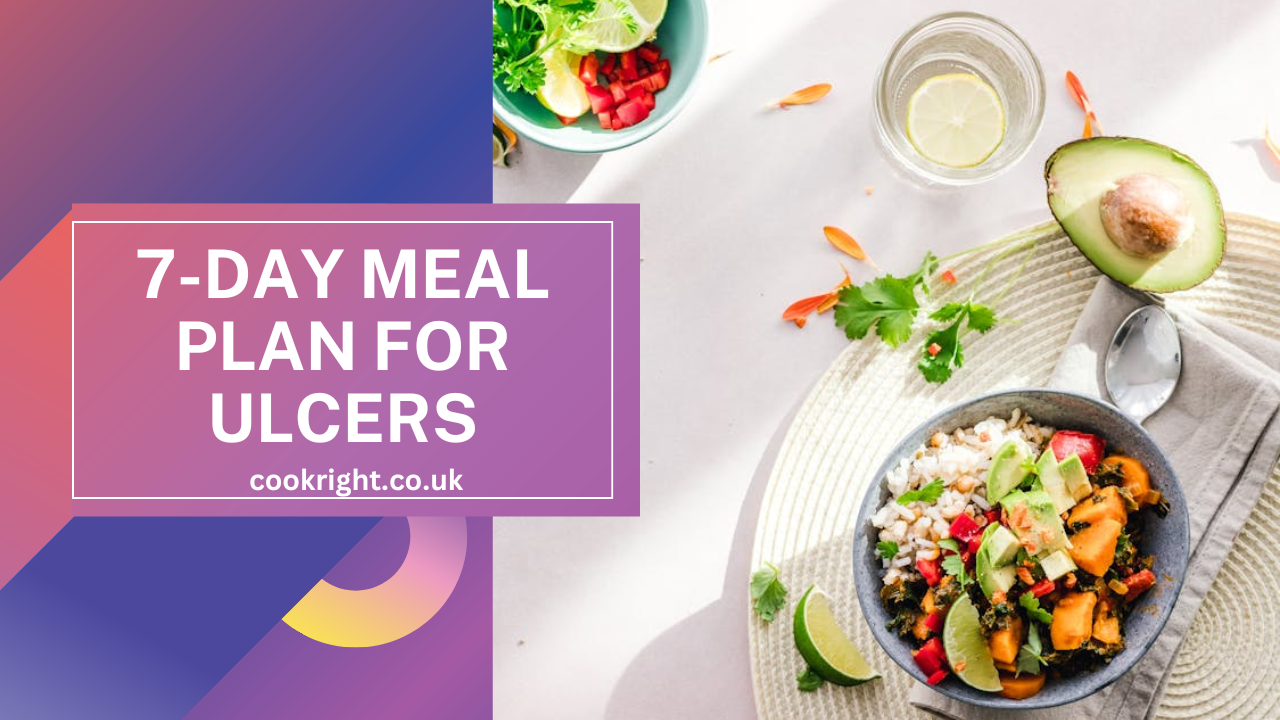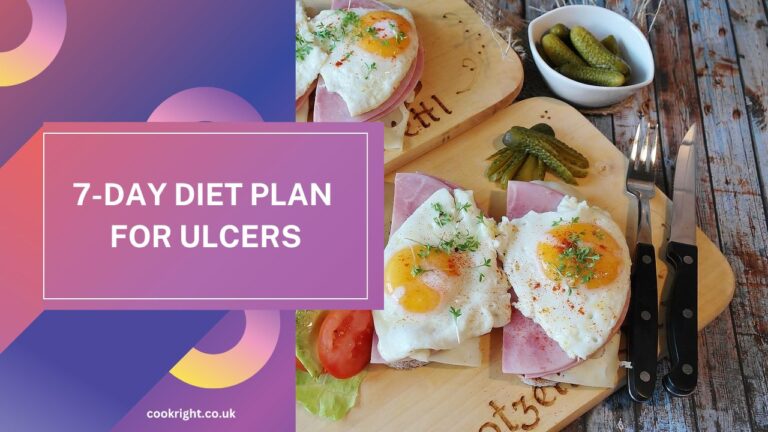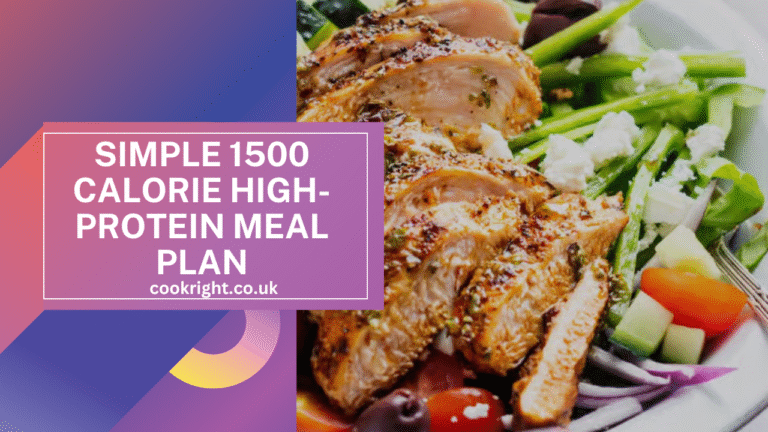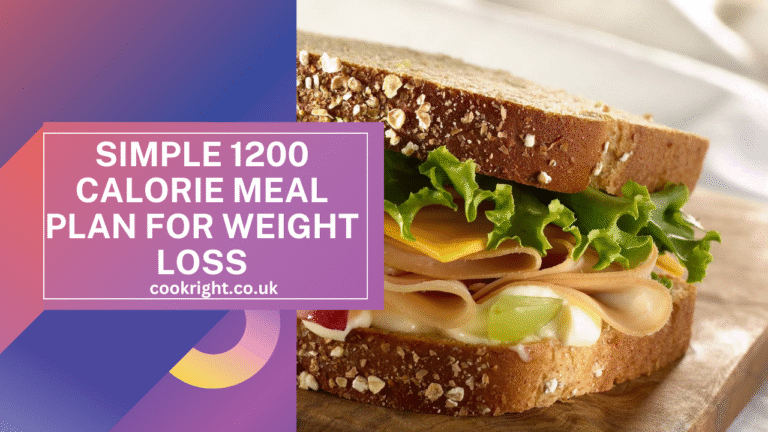Living with a stomach ulcer can be challenging, but the right diet can make a significant difference in managing symptoms and promoting healing. Stomach ulcers, also known as peptic ulcers, are sores that develop on the lining of the stomach, esophagus, or small intestine. They are often caused by an infection with Helicobacter pylori bacteria, excessive use of NSAIDs, or other factors. A well-balanced diet that avoids irritants can help alleviate discomfort and support the healing process.
Here’s a 7-day meal plan designed to be gentle on your digestive system while providing essential nutrients for healing.
Guidelines for an Ulcer-Friendly Diet
- Avoid Trigger Foods: Spicy foods, caffeine, alcohol, chocolate, and acidic foods like citrus and tomatoes can irritate ulcers.
- Eat Smaller, Frequent Meals: This helps reduce the acid load in your stomach, minimizing discomfort.
- Include Soothing Foods: Foods like bananas, honey, yogurt, and oatmeal can help coat the stomach lining and reduce irritation.
- Stay Hydrated: Drink plenty of water, herbal teas, and clear broths to keep your system flushed and hydrated.
7-Day Meal Plan
Day 1
- Breakfast: Oatmeal with sliced bananas and a drizzle of honey
- Snack: Applesauce with a sprinkle of cinnamon
- Lunch: Grilled chicken breast with steamed broccoli and white rice
- Snack: Plain yogurt with a teaspoon of honey
- Dinner: Baked salmon with steamed carrots and mashed potatoes
Day 2
- Breakfast: Scrambled eggs with spinach and whole wheat toast
- Snack: A pear or a small banana
- Lunch: Turkey and avocado wrap with lettuce on a whole wheat tortilla
- Snack: A handful of unsalted almonds
- Dinner: Baked chicken with green beans and quinoa
Day 3
- Breakfast: Smoothie with banana, spinach, almond milk, and a scoop of protein powder
- Snack: Cucumber slices with hummus
- Lunch: Grilled tilapia with a side of brown rice and sautéed zucchini
- Snack: Rice cakes with almond butter
- Dinner: Lentil soup with carrots, celery, and potatoes
Day 4
- Breakfast: Cottage cheese with pineapple chunks
- Snack: Melon slices (cantaloupe or honeydew)
- Lunch: Baked chicken with steamed spinach and roasted sweet potatoes
- Snack: A small bowl of plain yogurt with blueberries
- Dinner: Stuffed bell peppers with ground turkey, rice, and chopped veggies
Day 5
- Breakfast: Whole wheat pancakes with sliced bananas and honey
- Snack: A handful of mixed berries
- Lunch: Turkey meatballs with pasta and steamed broccoli
- Snack: Apple slices with almond butter
- Dinner: Grilled shrimp with quinoa and steamed asparagus
Day 6
- Breakfast: Smoothie bowl with banana, oats, almond milk, and chia seeds
- Snack: Sliced pears with a sprinkle of cinnamon
- Lunch: Vegetable stir-fry with tofu, bell peppers, carrots, and brown rice
- Snack: Plain popcorn with a light sprinkle of salt
- Dinner: Baked cod with mashed cauliflower and green beans
Day 7
- Breakfast: Soft-boiled eggs with whole wheat toast and avocado
- Snack: A small bowl of watermelon chunks
- Lunch: Grilled chicken Caesar salad with a light dressing
- Snack: Smoothie with banana, almond milk, and a spoonful of honey
- Dinner: Baked turkey breast with roasted vegetables and quinoa
Tips for Success
- Modify as Needed: Adjust portion sizes and ingredients based on your individual tolerance and nutritional needs.
- Avoid Lying Down After Meals: Stay upright for at least 30 minutes after eating to prevent acid reflux.
- Consult Your Doctor: Always consult with a healthcare provider or a dietitian before making significant changes to your diet, especially if you have a medical condition like an ulcer.
Final Thoughts
Managing an ulcer doesn’t have to be overwhelming. By following this 7-day meal plan and incorporating soothing, nutritious foods into your diet, you can help alleviate symptoms and promote healing. Remember, consistency is key, and making gradual changes can lead to significant improvements in your digestive health.
Feel free to modify this plan based on your preferences and tolerances, and always listen to your body’s signals. Here’s to a comfortable, ulcer-friendly week ahead!








